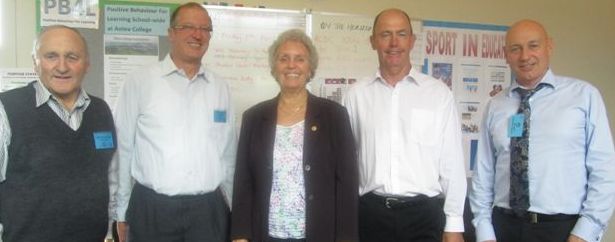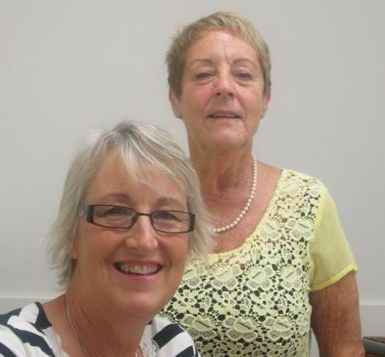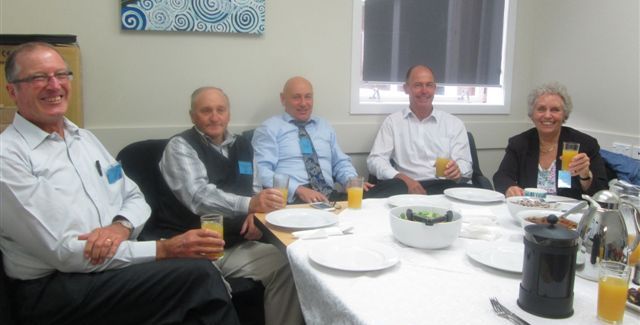By Wendy Betteridge
Posted: 15 April 2014
 On Friday 11 April, a few 'serious business people' turned up at Aotea College at the invitation of Jane Hocking of Partners Porirua and Sue Roberts, Head of Department of Careers, Vocational Studies and Gateway.
On Friday 11 April, a few 'serious business people' turned up at Aotea College at the invitation of Jane Hocking of Partners Porirua and Sue Roberts, Head of Department of Careers, Vocational Studies and Gateway.

As part of their mission to excite young people about the working world, Partners Porirua developed this partnership project which has now been running intermittently since 2008. The process utilizes the expertise of the volunteer Rotarians to be an interviewer for the student interviewees. The history of this project actually goes back over 20 years when Bill Thomas, head of the Transition Department, approached the Rotary Club of Plimmerton for volunteer interviewers.
Liaising with Phil Whearty from the Rotary Club of Plimmerton, Sue had gathered together 61 students from Year 11 and organised interview rooms so that each student could get their first experience of a mock job interview. The programme is part of a 10 week citizenship course provided for year 11 students. Its purpose is to give students the experience and opportunity to introduce themselves and share about their interests and aspirations. Talking to a stranger who asked questions of them, was definitely out of some students’ comfort zone, while for others it was a real buzz!
It was immensely warming that some students presented very clear guidelines as to where they are heading:
I want to
- be the first Tongan to play at Wilburton
- get into maths and follow dentistry
- write … I just love writing!
- become a personal trainer
- study to be a pilot
- join the army and become a medic
- use my skills for web design
 Time will tell how the students felt about the experience as Sue will be meeting with them to find that out. But while the interviewers were having their lunch, Jane took time to gain their impressions.
Time will tell how the students felt about the experience as Sue will be meeting with them to find that out. But while the interviewers were having their lunch, Jane took time to gain their impressions.
The consensus was that the students were better prepared than they had been last year and that while some of they might have felt nervous, they conducted themselves well. With the job market so tight opinions were expressed that students needed to be realistic about their goals and very focused on what steps they needed to take to reach them.
Sue reflected that having this opportunity gave the students a bench mark to start considering options. Most Year 11 students, aging between 15–16 years, aren’t clear about the pathway they want to head down. So this interview process served as a start for many of them. It included considering where they want to go, what they are interested in and what they can offer a future employer.
The team of interviewers identified that the job scene and prospects of employment were a very different scenario for those heading into the work force in 2014 and beyond, compared to what the interviewers themselves experienced when they were in the same position as mid-teens, 'way back when'. Despite this difference, mention was made of the still relevant procedures for a successful interview: voice, dress, manner, etiquette, timeliness and attitude.
The group also noted that students were busier with their leisure time than in previous years. Overall, the youth appeared to be using their time better, involving themselves in more organised activities, rather than in ‘go nowhere’ time - for example, hanging around in malls.
How fortunate were these young people to have had this experience, to learn from and develop their own style of how they present themselves to life’s opportunities beyond school?
